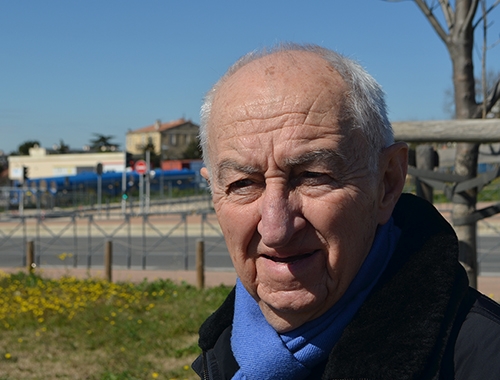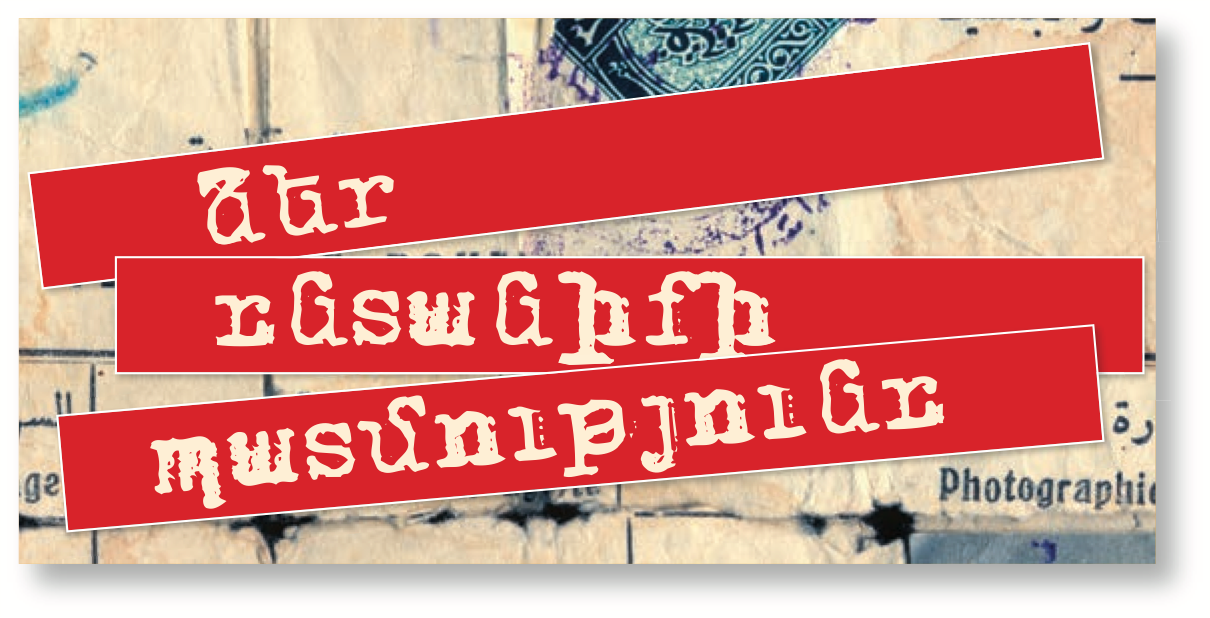 Immigrated from France (Marseille) 1947
Immigrated from France (Marseille) 1947
Robert Der-Mergerian
My father had purchased a piece of land. They would always ask him – where are you going to build your house? Pointing to the horizon, he’d answer, “There. I will build my house in Armenia.” They were four brothers and decided to repatriate in 1947. My father’s wish came true. He built that house with his brothers.
One of the main reasons that we repatriated is that three years before, during the liberation of Marseille, I lost my 18-year-old brother. The family wanted to leave and put that all behind.
The propaganda at the time was that the population of Armenia had to increase because Molotov (the Soviet Union’s foreign minister) was to go before the United Nations and demand for the return of western Armenian lands. People were needed for that. In any event, this repatriation was a big event in Armenian history, given that we’ve always experienced emigration, whether voluntary or forced. Such a massive immigration, hundreds of thousands from seven-eight countries, was a first in our history. It brought a new breath and energy to Armenia.
I remember boarding the ship Rosia to come to Armenia. They gave us a cabin on the ship. Not everyone had such a room. When the ship reached Turkey and passed through the Bosphorus, many threw flowers on the water to commemorate the victims of the Genocide.
In Batum, we were housed in a huge warehouse. We stayed there for three days and later boarded a train. We reached Tiflis at night. They told us not to hang anything from the windows, lest it be stolen. We would hang food outside so it wouldn’t go bad. My father told me, “See, this is a famous city. Many Armenians lived here.” At one time, they’d call Tiflis the little Paris.
We reached Yerevan. Some friends came to greet us and took us to a house in Shengavit allocated to us. It had no windows or door. My father said we couldn’t live there and rented an apartment in downtown Yerevan. We lived there until our house was built.
Conditions were bad. The country had just gotten out of the war. Ration cards were used for the first few years. In order to get by, my father and uncles sold whatever they had brought.
They had brought everything from France, even tools to build a house. I had brought stationery supplies – erasers, pencils, etc. I took them to school and they were stolen a week later. They disappeared. Here’s something else I remember. It was probably 1949. I was at the market with my father. It was on the site of the Rosia cinema. I wanted ice cream and my father bought some. Walking around with my father, I started to eat the ice cream. A boy rushed up and grabbed the ice cream. He stole it from my hand. I can’t condemn him. There was nothing to eat. Life was hard.
But we adapted. My father was very industrious. He loved his trade. He was a gifted tailor. He worked from home. He sewed clothes for high-ranking and prominent people in Armenia. Thus, we were able to overcome the challenges.
In 1951-52, we moved to the house we built on Baghramyan Avenue.
People who arrived from different countries had their own meeting place. There was a place for French-Armenians, for Armenians from Lebanon, etc. Frequently, they would marry from within.
All my friends were repatriates. In the 1950s, in school, the repatriates would make friends with other repats. One of my friends was from Egypt, another from Lebanon, and one from Syria. They are still living in Yerevan.
I was a student in the eighth or ninth grade. In the evenings, young people would stroll up and down Abovyan Street. One could hear French, Greek and Arabic. They spoke the languages of the countries they came from. Many didn’t know Armenian. A year after we arrived, my father hired an instructor to teach me Armenian.
At the time, there were many jokes about the repatriates. I’ll tell you one. A man is walking in the street. They ask him, were their donkeys in your country? He answers, there was one donkey. It was me. Now, I’ve come here.
To be honest, I didn’t have much contact with the Soviet regime. I wasn’t a Komsomol member nor a party member. That was my personal choice. Thus, they never bothered me. They never summoned me to the internal affairs ministry for questioning. It was pretty smooth going for me there.
I should add that before Stalin died there was no mutual trust. Even brothers didn’t trust one another. My father has placed a large picture of Stalin in the kitchen. He would say – perhaps this picture will save us and they won’t take us to Siberia.
One evening in 1949 we were returning home from Shrdjanayin (a major intersection in Yerevan). We saw many trucks. The next day my father said that they had collected people and taken them to the train station. They were deported.
One of my mother’s close friends and her family were deported to Siberia. They were the Pirian family. My mother would send them packages; food and clothes. They returned in 1951 or 52. They lived with us until they found an apartment. It was never explained why they were deported. I only know that the father would publicly protest out loud - this isn’t good, that isn’t good. There are bread lines. Perhaps this was one of the reasons. I don’t know and they didn’t say. Mr. Pirian then built a house next to ours. We’d frequently visit each other.
Pirian was a druggist and opened a small drugstore kiosk in Yerevan in the 1950s. I believe it was on Baghramyan Avenue, on the corner of Proshyan Street. His brother also died during the liberation of Marseille. They too returned to France.
Two years ago, I and Pirian’s second son were able to present some documents and two streets in Marseille, next to the Armenian Genocide memorial, were named in honor of our brothers, Maurice Der-Mergerian and Edmon Pirian.
I remember when Christian Pinot (the French foreign minister) came to Yerevan. It was in 1956. French-Armenian activists met with French reporters at a café. Some 10-12 people sat down. The others were older than me. They told the reporters about conditions and the wish of French-Armenian families to return to France. Many in those families had retained their French citizenship.
The prominent violinist Jean Der-Mergerian was my brother. He returned to France in 1981When he was there, all the concerts were organized by MosConcert. All the musicians had to go through it. It turned out that he was getting less concerts. Once, he had to give a concert in Italy. The agenda was prepared. One day before the troupe left they told him – you’re not going. It happened several times. They didn’t let him go to Poland. This forced him to decide to continue his career in France. He was received well her (France). For many years he taught at the Marseille Conservatory.
But he’d go to Armenia every two years, for concerts. He was much loved, especially in Gyumri. There was a benevolent organization in Gyumri that would invite him. He’d give charity concerts there.
I graduated school and enrolled at Yerevan State University, the Romano-German Languages Department. I became an English teacher and taught at the Foreign Languages Institute for four years.
My mother insisted on returning to France. My father was lukewarm on the idea. We had lived in Armenia for 18 years. But my mother really wanted to return. Her mother was here. She had a sister and a brother.
OVIR (Passport and visa department) kept refusing us. They accepted our third petition. We returned to France in 1966, by ship from Sochi to Marseille. I was engaged at the time and returned to Armenia to get married. She had come to Yerevan, staying with relatives. I knew them. They had a French-Armenian son-in-law. We met at their house and our relationship grew.
From Yerevan, I went to Baku to get married. Officially, it was difficult. This was 1968, and it was the first time that a French-Armenian went to Baku to marry a citizen of Azerbaijan. At first, it didn’t happen. I left for Moscow. Three days later I was scheduled to fly back to Paris. The brother of my betrothed telephoned to say they had found a way. I had to go to Baku again. I took the next flight to Baku and registered our marriage.



















